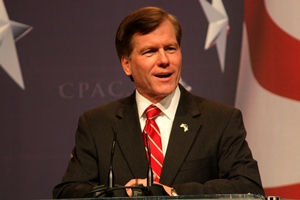Whether it’s the debt ceiling, gun control, or other hot topics in politics, it seems like Congress is paralyzed by partisan gridlock. However, Justice Fellowship – the advocacy arm of Prison Fellowship Ministries – is excited to be part of fostering growing bipartisan agreement on criminal justice reform, an issue that has bitterly divided liberals and conservatives for years.
On January 9, in his State of the Commonwealth address, Virginia Governor Bob McDonnell announced strong support for legislation to automatically restore civil rights for felons, stating that we are “a nation that believes in redemption and second chances.” Although many were surprised by the announcement, the governor’s track record provided a strong clue. McDonnell has restored the rights of 4,423 people – more than any governor before him.
Currently, Virginia ex-felons reentering the community and trying to restart their lives can only regain their civil rights (the right to vote, hold public office, serve on jury, etc.) if they petition the governor and the request is granted. “It is time for Virginia to join the overwhelming majority of states in eliminating our bureaucratic restoration process and creating a clear predictable constitutional and statutory process,” stated Governor McDonnell.
Unfortunately, Governor McDonnell’s proposal has not been embraced by all. Despite the governor’s support and testimony from Attorney General Ken Cuccinelli, who is running for governor this year, a subcommittee of the House Privileges and Elections Committee effectively killed the nine proposed constitutional amendments introduced by both Republicans and Democrats by a 6-1 vote.
The issue isn’t dead yet. A similar measure (SJ 266) squeaked out of the respective senate subcommittee on a 3-3 vote. However, even if the full committee approves, it will return to the unpromising House for consideration.
Clearly Justice Fellowship has more work to do to educate legislators and the public about why restoring civil rights for individuals who have paid their debt to society creates a more deliberate and effective justice. As Justice Fellowship’s Vice President Craig Deroche argued in this Richmond Times-Dispatch guest column, “[L]imiting or excluding offenders from a clear and just path to restoration takes away the incentive the community has for the person to transform his life, take responsibility for his own affairs and provide for his own family.” We invite you to join us as we advocate on this issue and other efforts that seek to increase public safety, respect for victims and the transformation of offenders by signing up for Justice Fellowship’s e-alerts here.
